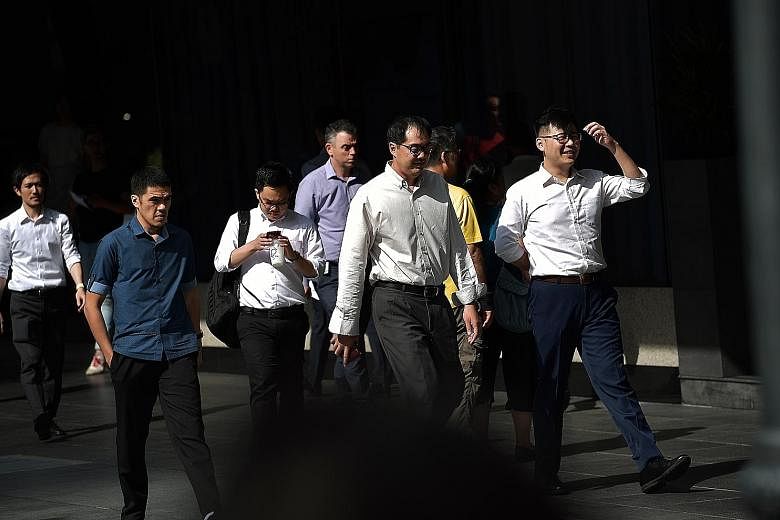The pay gap between senior managers and entry-level employees has widened here, a new study claims.
It found that the gap grew by 12.1 per cent from 2008 to 2017, a trend reflected in much of the world.
The study by consultancy Korn Ferry looked at the typical pay for directors or senior managers, divided it by the typical salary for graduate trainees or skilled manual workers and compared the figure over the decade.
The gap increased in 77 per cent of 58 countries Korn Ferry analysed, with the average increase in Asia coming in at 15.3 per cent across nine countries.
Singapore's 12.1 per cent was the fourth highest rise in the region, behind India at 66 per cent, Malaysia at 14.7 per cent and Indonesia at 12.7 per cent.
The firm has data on around 105,000 people here.
Mr Kartikey Singh, Korn Ferry Singapore's associate client partner, noted that the average increase in Asia seems moderate for a 10-year period.
This could be because while senior level pay has risen steadily due to high demand for talent that can help a business expand, economic and inflationary growth has also contributed to significant salary increases at the lower level, he said.
But "as businesses feel the pressure of technological disruption and the crunch of good middle-and top-level leaders, the gap might widen at a faster pace", Mr Singh noted, adding that this could make it difficult for organisations to hire talent if senior management and executive salaries are questioned by the general public.
Singapore's pay gap increase was higher than countries like Britain (9.3 per cent), Japan (9.7 per cent) and China (2.7 per cent), but lower than all six Middle East countries analysed, which had rates of between 39 per cent and 117.8 per cent.
It was also similar to the United States at 12.2 per cent.
Some countries have narrowed pay gaps. France reduced it by 5.8 per cent and Italy by 3.1 per cent.
Korn Ferry attributed this to higher tax rates for big earners, fewer pay increases at top levels, and government and union intervention on salaries at lower levels.
A Manpower Ministry spokesman said that its data shows that the wages of rank-and-file employees here have consistently grown faster than those of senior management over the past five years.
And real income from work for full-time employed residents rose 4.2 per cent a year over that period at the 20th percentile, higher than the increase of 3.5 per cent at the median.
Ms Jaya Dass, managing director at recruitment firm Randstad Singapore and Malaysia, said the pay gap here is likely to widen as more companies are operating as conglomerates, offering a number of products and services to customers, so senior-level staff will take on bigger portfolios and see their salaries rise.
She also expects the gap to be wider in the fintech and life sciences industries, where innovative people will be highly valued.
Korn Ferry noted that company pay gaps may vary based on industry and operating models. For instance, a retailer will have a bigger wage gap than a professional services firm as it mainly employs lower-paid people.
It recommended that firms keep employees engaged by showing them a clear career path that will take them to higher-paid roles, and help them to develop the hard and soft skills they need to get there.



